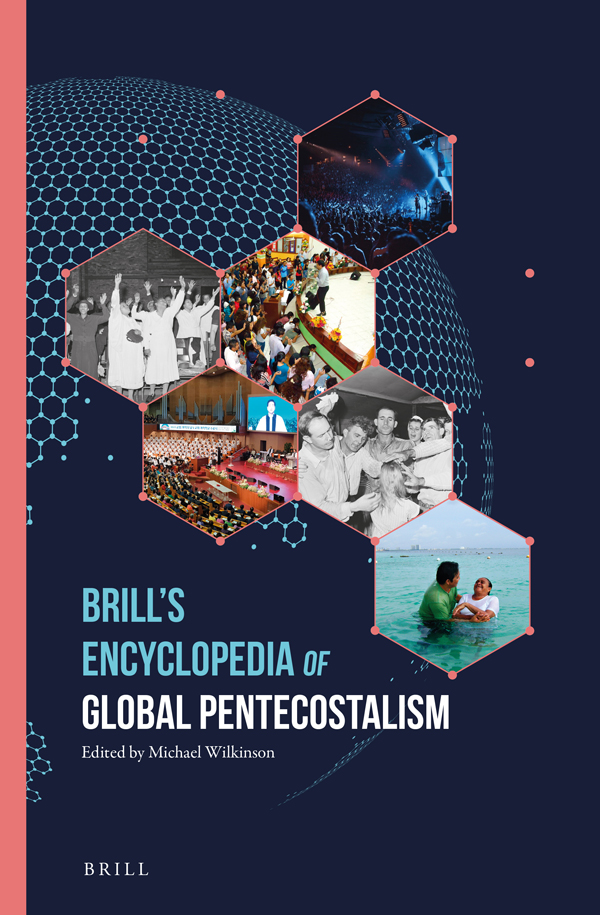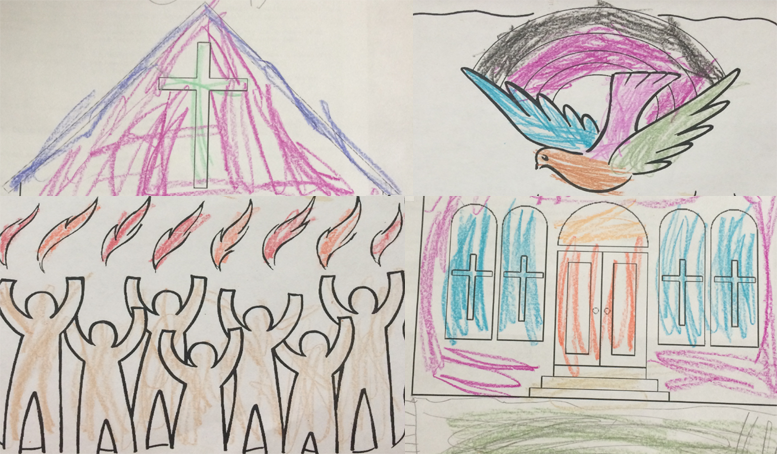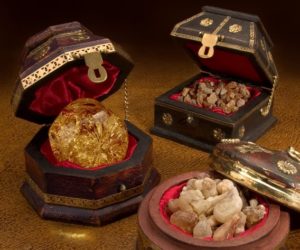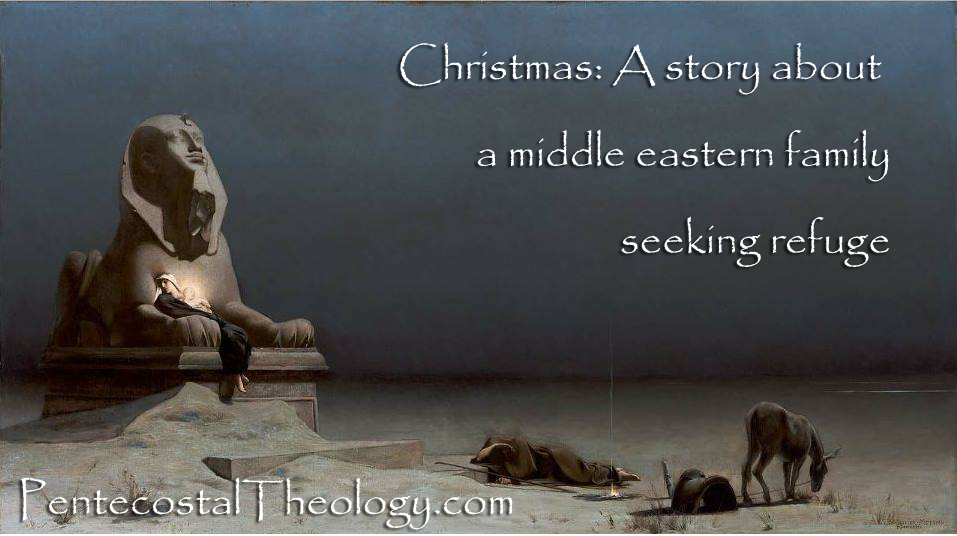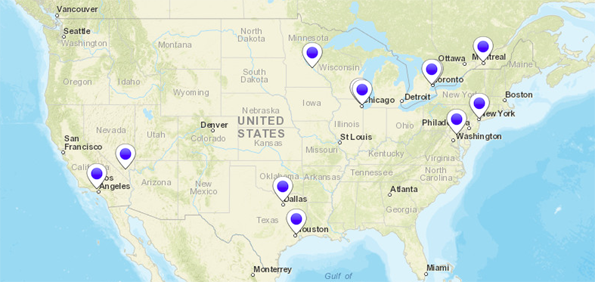Rapid Decline of Holy Spirit Baptisms (Research Study)
This study was first published by Cup & Cross Ministries International on March 1, 2018
Information Regarding the Questionnaire and the Church of God Statistics
The survey was developed by Dr. G. D. Voorhis in 2005 with the hope that it might contribute in some small way to ascertain certain trends which appear to be developing in the Church of God (headquarters in Cleveland, Tennessee). The primary emphasis was on the baptism of the Holy Spirit, according to Acts 2:4, with the initial evidence of speaking with other tongues as the Spirit gives the utterance.
One might think that the charismatic movement of the 1960’s and 1970’s, with its effect on mainline interdenominational churches, would bring an upsurge in traditional Pentecostal churches as individuals experienced this infilling of the Spirit, but this was not so in the Church of God. This survey, with the confounding variables it might contain, along with statistics supplied by the General Headquarters of the Church of God, proves without a reasonable doubt that the Church of God is rapidly becoming a non-Pentecostal organization.
The statistics alone, supplied by General Headquarters, show that during the period of Sept., 2003 to August, 2004, we had 266,419 conversions, but only 60,926 that were baptized with the Holy Ghost. This downward trend in Holy Ghost baptisms has been continuing since 1960 (which was as far back as we could go in computerized records), up until the present time. In fact, the 2003-2004 statistics compute to a 23% decline in the Holy Ghost baptisms in this one year alone….
Going back to Portrait and Prospects, [Dr. J. D. Bowers, Ph.D., editor] the only survey ever authorized in the history of the Church of God (and I think one of the best things of this type ever coming from Headquarters), Mitchell W. Flora, D.Min., stated on page 35, “Also, while elements of Pentecostal spirituality may be present, the survey does not reveal the regularity of these occurrences, nor does it reveal the extent of these practices. The real question is how many of those who attend our churches are sanctified or filled with the Spirit.”
In the same writing, “Dr. John Maxwell’s assessment that our denomination is prone to the rigors of a slow death,” we again quote page 80: “Church of God ministers, with which of the following are you very satisfied? Spiritual life: 42% of the Church of God answered ‘yes’, but 68% of other Pentecostals reported ‘yes’.”
Well under half of our ministers are paying the price of prayer, fasting, and devotion to the Word of God to feel satisfied with their spiritual life. We are outdone by other Pentecostals by 26%. Another quote we should mention is on page 88: “Innovative pastors and others desiring to change to achieve greater effectiveness exhibit a tendency to disconnect ministry development and practice from their Pentecostal identity and faith”….
Based on this, and on the statistics from the Church of God General Headquarters in Cleveland, Tennessee, as well as the computations that were done from the surveys by Gary Anderson (an engineer in computer and mathematics, as well as a member of Central Church of God), who put in countless hours perfecting the statistics as much as possible from the data available, I must concede that the Church of God, based in Cleveland, Tennessee, is rapidly becoming a non-Pentecostal organization. All that can change this trend is a miracle of God such as the Cane Ridge Camp Meeting or the Azusa Street Mission. We need a last-day revival, accompanied by a great outpouring such as happened at Pentecost in the book of Acts.
If I read my Bible correctly, this is not promised universally; however, this does not keep churches from paying the price in prayer and consecration to experience local revivals and enjoy great Pentecostal experiences, in spite of the last days before the coming of our Lord to rapture His church and send His judgments on this wicked, sinful earth. “Even so, come Lord Jesus.”
Within Holy Ghost Baptisms:
Within 44 years, Holy Ghost baptisms grew by 54.22%, with an average annual growth rate of 0.98950%, less than 1%. The ratio between church members and NEW HOLY GHOST BAPTISMS DROPPED 17.6% to 6.1% currently. Currently, only 6% of our members have the Holy Ghost baptism. (Dr. G. D. Voorhis, Experiences in Pentecost: 33 A.D. – 2005 A.D., p.311-16)
I myself have preached the Pentecostal Way of Salvation since age 16. I will soon be 50 years old with over 30 years invested in ministry with the Church of God. You have probably invested even more. I didn’t respond to the Heavenly Call to put all this work into the Kingdom, only to find out 30 years later that 90% of our church folk don’t even know who the Holy Spirit is. We simply cannot claim, as a movement and as a church, that we are Pentecostal if most of our members have never experienced His Baptism with tongues and fire.
For this reason, I am re-committing myself and ministry to revival and restoration of the Pentecostal Message through praying, fasting and preaching:
- salvation of the sinner’s soul and entire sanctification through the Blood of Jesus
- baptism with the Holy Spirit and fire with initial evidence of speaking in tongues
- supernatural gifts and ministries of the Holy Spirit
- healings, deliverance and signs following
- pre-Millennial return of Christ and pre-Tribulation Rapture of His Church to glory.
As I was considering how to end this already long letter, I came across the following statement one of my students made in a final paper:
“I hope this is a section where I am allowed to be real. Here I would like to answer the question, ‘How will the study of the Book of Acts change the way that you think or live as a Christian?’ I write this with tears in my eyes because I don’t know how to be filled with the Spirit in such a way as Steven or Paul. I’m sitting at my desk wondering how I can become so filled with the Spirit that I am not only willing to die for my faith, but that I can do so with the peace that Stephen had?”
Please consider the URGENCY of this generation!
- Call us and let us reason and plan what we can do together to change this rapid decline.
- Revival will not come without preaching!
- Revival of Pentecost will not come without preaching the Message of Pentecost.
For the Kingdom,
Rev. Dony K. Donev, D. Min.
A Practical Superfood Survival Guide of Wellness Recipes
ORDER at: https://www.amazon.com/Practical-Superfood-Survival-Wellness-Recipes/dp/B0B1ZPB339/
The Orthodox Church before AD 1054
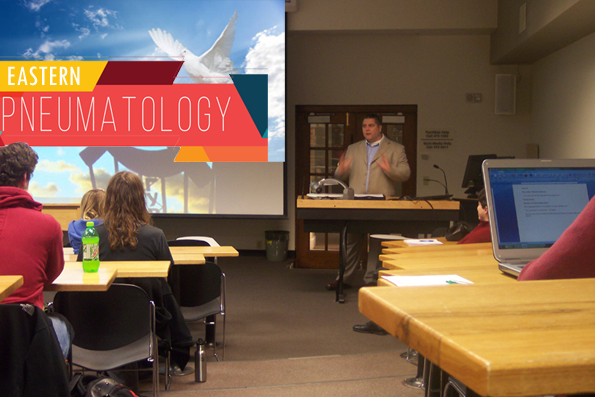
Dony K. Donev, D.Min.: Eastern Pneumotology Lectures
Eastern Orthodoxy can be expressed in one word: theism. The purpose and meaning of life is to become more like God. Deification is pursued by all means of human existence. This quest for divine likeness often includes the typical for the Eastern Church, speculation on the divinity and humanity of Christ, traditions on the doctrine of the Trinity and non-traditional mystical experiences. They appear in the context of both physical and spiritual characteristics in individual and corporate ecclesiastical environment. The role of the Spirit in the process of deification is threefold and involves: creation, re-creation and theism. Eastern Pneumotology follows the graduate process of theism development. The Spirit is involved in the original creation of the world as well as the new-birth experience. His work however, does not end there, but continues throughout the process of personal deification of the believer.
The Orthodox Church before AD 1054
The experiencing of the Spirit in this period is characterized with the existence of spiritual gifts, the quest for spiritual knowledge and an experiencing of the kingdom of God. Beside attempts to explain the nature and existence of the Trinity, the ecclesiastical writings contain passages on sin and prayer (John Cassian), creation and re-creation (Maximus the Confessor). The main focus in this context remains on the mystical experiencing of the Spirit. A motto statement of this era is the expression of Pseudo-Dionysius the Areopagate that “God can be approached experientially beyond the bounds of sense perception and reason.”[1]
From a similar perspective John Cassian believed that spiritual knowledge comes only through the presence of the Holy Spirit.[2] It is a result of one’s inflammation with the desire to possess the wisdom of God. This search for spiritual knowledge is accompanied by a personal quest for ethical and practical knowledge. The process contains one’s deliverance from the evil of the world and humility of heart as the fruit of the Spirit.[3]
The fruit of the Spirit is the context in which the gifts of the Spirit operate. They are not a product of one’s efforts, but rather acts of God’s grace. Cassian divides the list of existing spiritual gifts in three categories: (1) gifts of healing, (2) gifts for ecclesiastical edification and (3) gifts contrived by deceiving devils.[4] The latter probably resembles a problem with false teachers and false prophets experienced within the Eastern Church of the late third and early fourth centuries.
Cassian further claims that the spiritual gifts are given for a season, after which only love continues.[5] Yet, on the other hand, he reports the experiencing and practice of spiritual gifts in his time.[6] It seems appropriate to assume that Cassian did believe in the operation of spiritual gifts not only through the apostolic time, but also in his own time. Thus, his postulation for the disappearance of the Spiritual gifts refers to a rather latter period when the church will not be present in the world any longer and spiritual gifts will not be needed in the context of the Kingdom of God. Love, however, will remain.
Another writer who focuses on the nature and the existence of the Kingdom of God is Maximus the Confessor (ca.580-662). Maximus was born and lived in the aristocratic circles of Constantinople, the capital of the Byzantine Empire. He was exiled in Thrace for opposing the heresies of monotheletism and monoenergism.[7]
In the pneumotological context of his claims, he assumed that the kingdom of God is the Holy Spirit. He proves the former by an interesting analogy between the kingdom, where God dwells, and the temple of the Spirit, which are the Christians. The spiritual temple is consisted only of the believers who have rejected evil and thus have accepted the fruit and the gifts of the Spirit.[8] Since they have the kingdom of God inside of them, Maximus concludes that the Spirit and the Kingdom are identical equivalents.
The Kingdom of God, according to Maximus, is realized only in a state of continues prayer. It is only then, that the mind departs from all human knowledge and worldly ideas. Separated from all human perceptions, one receives understanding of God, but “only without the human senses.”[9] This state is an ecstasy in which one abides in God in a complete, but rather momentary deification.[10] The eternal deification is preserved for the ones who maintain a righteous life, and is reached only in the eternal union with the Trinity.[11]
The process and act of deification is described as the Baptism of the Holy Spirit by another systematic writer of this early period, by the name of Symeon the New Theologian. Burgess describes Symeon as the most mystical writer in description of his personal pneumatic experience.[12] The New Theologian, claims that baptism of the Spirit opens the door for a continuous theosis. Thus, deification is impossible apart from the spiritual baptism.[13] Denial of the fact that the Spirit baptism and deification cannot be experienced today is blasphemy or unforgivable sin.[14] In this context, one can be neither saved, nor deified without the baptism of the Spirit.
Furthermore, the baptism of the Spirit is received only after extensive process of preparation and purification, which comes close to our modern-day, Pentecostal understanding of sanctification. During this process, one grows in meekness and humility, being aware of his/her sins.[15] The final stage involves purification with many tears, without which no one can receive the Holy Spirit.[16] Symeon understands the above process of the baptism with the Holy Spirit as a return to a radical living of the Gospel in analogue to the primitivism of the first century Church.[17]
[1] Burgess, 38.
[2] Conf. 14.16, NPF 2nd Series 11:444.
[3] Colm Luibhead, John Cassian: Confences, CWS (New York: Paulist Press, 1985), 14.10, NPF 2nd Series 11:440.
[4] Conf. 15.1, NPF 2nd Series 11:445-46.
[5] Conf. 1.11, NPF 2nd Series 11:299-300.
[6] Conf. 15.4-5, NPF 2nd Series 11:447.
[7] Burgess, 40.
[8] Ibid., 44.
[9] Ambigua 10, PG 90:col. 1113.
[10] Ambigua 7, PG 90:col. 1076.
[11] Ambigua 10, PG 90:col. 1196.
[12] Burgess, 38.
[13] Ibid., 61.
[14] Disc. 33.3-5, 341-43.
[15] TGP 3.23, 87.
[16] Disc. 3329.5, 313.
[17] Burgess, 62.
160,000 Pentecostals in Bulgaria Reported by the NEW Encyclopedia of Global Pentecostalism
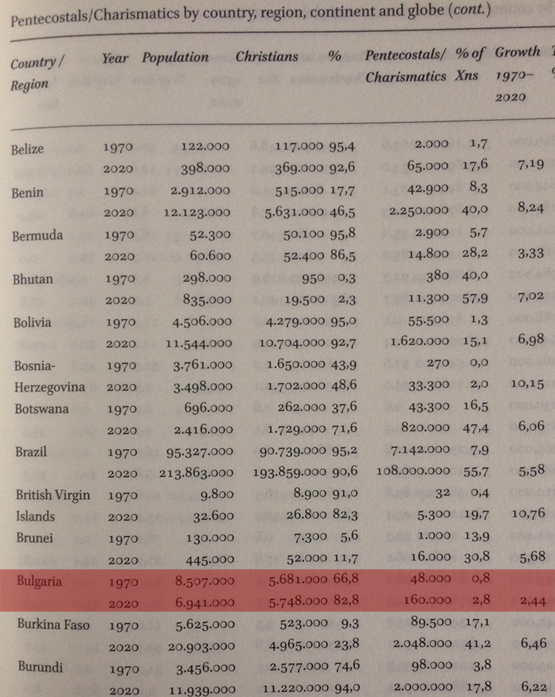
Restorative Significance of the Gifts Given to the Christ Child
It is recorded that the Magi gave the Christ Child three gifts upon his birth; gold, frankincense and myrrh. We understand the gold today as a physical gold, representing His kingship and the other two as an incense to symbolize his priestly role and oil for his foreseen death. Yet, what if the gold that was given to the Christ child was for another reason and perhaps it was not “gold”, but a golden spice or a golden salt. Of the gifts, one could be ingested, one could be inhaled and one could be absorbed. If we look at all from a medicinal viewpoint, these three gifts may have more symbolic meaning than once perceived.
MAGI
So who exactly were the “Magi”. We know that they followed the stars and were from the East. The East was a region of the world known, at the time, for its great knowledge of natural remedies. So it is not unimaginable that they could have been natural healers or homeopathic doctors of their times. This could explain the hypothesis that all three gifts had a therapeutic purpose in the life of Christ.
GOLD
If we view the gold in compound form, it can be used in the treatment of rheumatoid arthritis. Gold is a type of disease-modifying anti-rheumatic medicine (DMARD) that dampens down the underlying disease process. This meaning it treats inflammation and stops the immune system from attacking its own body’s tissue. Gold can also be used to treat other auto-immune conditions. If we think of the gift of gold as a spice, the first one that comes to mind is curcumin which is known as the “golden spice” of the East. It also has the ability to reduce inflammation and provides immune system support along with anti-cancer effects. This golden spice seems to have the ability to kill cancer cells and prevent their regrowth.
FRANKINCENSE
When frankincense is inhaled, it is the most effective method of delivery to send a chemical message to the brain. The oils in frankincense have a high level of sesquiterpenes, an agent found in plants that has the ability to go beyond the blood-brain barrier. Sesquiterpenes from frankincense increase oxygen availability in the limbic system of the brain which leads to an increase in secretions of antibodies, endorphins and neurotransmitters. In layman’s terms it has the ability to go straight to the brain without traveling through the bloodstream and brings healing properties to reset and repairs its internal communications. It’s almost as if it can unlearn a disease or degenerative disorder passed down in our DNA.
The amygdale glad of the brain’s limbic system plays a major role in storing and releasing emotional trauma. The only way to stimulate this gland is with fragrance or the sense of smell. This may help us understand how we are able to release emotional trauma with aromatherapy of frankincense.
MYRRH
Myrrh also can arouse the limbic system to release emotional trauma. It also has anti-inflammatory and immune boosting properties among with many other health benefits. Once applied to the body, oil molecules pass through dermis, into the capillaries and directly into the bloodstream.
The substance know as monoterpenes are present in almost all essential oils. They are what enhances the therapeutic values of other components and are the balancing portion of the oil. They inhibit the accumulation of toxins and restore the correct information in the DNA of the cell. Sesquiterpenes are also found in myrrh and delete the bad information in cellular memory or memories that are hypothesized to be stored outside the brain in the body.
REMARKS
This is quite interesting, to say the least, that all three gifts can protect the body from such dramatic trauma. The body of Christ from infancy was being safeguarded against what was to become his destiny of great suffering and pain. The cathartic releasing of emotional trauma provided with the gift of frankincense would lay the foundation for the harrowing experience of death by crucifixion.
All three offerings had anti-inflammatory properties and helped support the immune system by preventing the system from attacking its own body’s tissue. Christ’s earthly body was protected right down to the minuscule cellular level. Even the cellular memory of his body was restored with these gifts. At a molecular level, His Heavenly DNA was being guarded. The gifts purposed to protect the Christ child’s from disorders genetically passed down and to restore the information in the cells of the DNA.
One gift was for the body, one was for the blood and one was for the brain. One gift purposed to go beyond the blood-brain barrier while the other was via the bloodline. The Christ child was both a descendant of a Heavenly father and an early mother. The father’s bloodline was supernatural while the mothers’ was a physical line.
We will never truly understand this side of Heaven all the care that went into protecting the Christ child. Yet since we are descendants of a Perfect Deity, we too have this promise of complete restoration of curses, sickness, disease, imperfections, degenerative disorders, mental impairments, and any physical, mental or spiritual attack of the body, mind and soul. We have been given a choice of living a life of blessing or curse. Just as the gifts of the Christ child had to be accepted, we too much choose to accept this promise.
BULGARIA in Brill’s Encyclopedia of Global Pentecostalism
Brill’s Encyclopedia of Global Pentecostalism (BEGP) provides a comprehensive overview of worldwide Pentecostalism from a range of disciplinary perspectives. It offers analysis at the level of specific countries and regions, historical figures, movements and organizations, and particular topics and themes. The online version of the Encyclopedia is already available
For some of you it has been a long time ago that you submitted your article(s) for BEGP, for others it was a bit more recent, but I am very happy to announce that this Summer the print edition of Brill’s Encyclopedia of Global Pentecostalism will finally see the light. With this we can proudly close this chapter and proceed to see what the reception of the volume will bring! Thank you for being part of this great project!
To celebrate, we will organize an online symposium on September 16th, with presentations from the editors as well as 3 experts who will comment on BEGP: Amos Yong, Birgit Meyer and Néstor Medina. You can find more detailed information in the attached flyer. Please be welcome.
Registration is free (but necessary to receive a link); we will raffle one free copy of the print edition among the registered participants. For registration and questions, please send your message to begp@brill.com, mentioning Symposium in the subject line.
We hope to see you then!
Bulgarian Evangelical Churches on the West Coast (2021 Report)
Bulgarian Evangelical Churches – West Coast (2017 Report)
- Los Angeles (occasional/outreach of the Foursquare Church – Mission Hills, CA)
- Las Vegas (outreach of the Foursquare Church – http://lasvegaschurch.tv)
- San Francisco (occasional/inactive since 2012, Berkeley University/Concord, CA)
- Phoenix, AX (occasional/outreach)
READ MORE:
- First Bulgarian Church in Chicago Opened in 1907
- Gateway Cities for Bulgarian Evangelical Churches
- How to Start a Bulgarian Church in America from A-to-Z
- Unrealized Spiritual Harvest as a Paradigm for Cross-Cultural Ministries among Migrant and Disfranchised Ethnic Groups in America Today
Bulgarian Evangelical Churches in Texas (2021 Report)
 Dallas: 2435 East Hebron Parkway Carrollton, Texas 75010 (outreach of the Assemblies of God – Carrollton, TX)
Dallas: 2435 East Hebron Parkway Carrollton, Texas 75010 (outreach of the Assemblies of God – Carrollton, TX)
Houston: 6400 Woodway Drive (building #C), Houston, Texas 77057 (inactive/occasional since 2012)
READ MORE:
- First Bulgarian Church in Chicago Opened in 1907
- Gateway Cities for Bulgarian Evangelical Churches
- How to Start a Bulgarian Church in America from A-to-Z
- Unrealized Spiritual Harvest as a Paradigm for Cross-Cultural Ministries among Migrant and Disfranchised Ethnic Groups in America Today
Bulgarian Evangelical Churches in America (2021 Report)
CURRENTLY ACTIVE CHURCHES/CONGREGATIONS:
Bulgarian Evangelical Churches in Chicago (2017 Report)
Bulgarian Evangelical Churches in Texas (2017 Report)
Bulgarian Evangelical Churches – West Coast (2017 Report)
- Los Angeles (occasional/outreach of the Foursquare Church – Mission Hills, CA)
- Las Vegas (outreach of the Foursquare Church – http://lasvegaschurch.tv)
- San Francisco (occasional/inactive since 2012, Berkeley University/Concord, CA)
- Phoenix, Arizona
Bulgarian Evangelical Churches Canada (2017 Report)
- Toronto (inactive since 2007)
- Toronto/Slavic (active since 2009)
- Montreal (occasional/inactive since 2012)
Atlanta (active since 1996)
CURRENTLY INACTIVE CHURCHES/CONGREGATIONS:
- New York, NY (currently inactive)
- Buffalo, NY (occasional/inactive)
- Jacksonville, FL (occasional/inactive since 2014)
- Ft. Lauderdale / Miami (currently inactive)
- Washington State, Seattle area (currently inactive)
- Minneapolis, MN (occasional/inactive since 2015)
READ MORE:
- First Bulgarian Church in Chicago Opened in 1907
- Gateway Cities for Bulgarian Evangelical Churches
- How to Start a Bulgarian Church in America from A-to-Z
- Unrealized Spiritual Harvest as a Paradigm for Cross-Cultural Ministries among Migrant and Disfranchised Ethnic Groups in America Today
Brill’s Encyclopaedia of Global Pentecostalism
Brill’s Encyclopedia of Global Pentecostalism (BEGP) provides a comprehensive overview of worldwide Pentecostalism from a range of disciplinary perspectives. It offers analysis at the level of specific countries and regions, historical figures, movements and organizations, and particular topics and themes. The online version of the Encyclopedia is already available